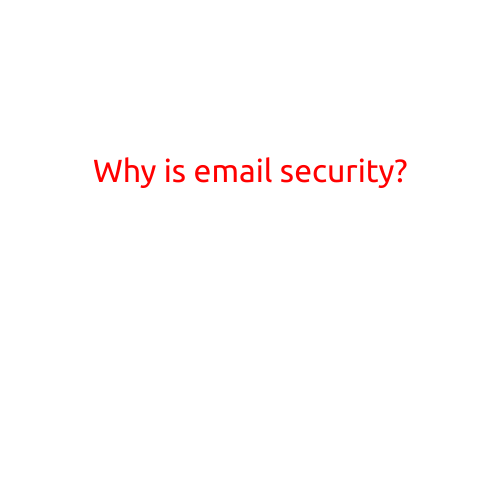
Why is Email Security So Important?
In today’s digital age, email has become an essential tool for personal and professional communication. With the rise of email usage, the importance of email security cannot be overstated. Email security is crucial to protect sensitive information, prevent cyber attacks, and maintain the trust of individuals and organizations using electronic mail.
The Risks of Unsecure Email
Unsecured email can pose a significant threat to individuals and organizations. Hackers and cybercriminals can easily intercept emails, steal sensitive information, and use it for malicious purposes. This can lead to financial loss, identity theft, and damage to reputation. Moreover, unsecured email can also compromise business confidentiality and intellectual property.
The Consequences of a Data Breach
A data breach through an unsecured email can have severe consequences, including:
- Financial loss: A data breach can lead to significant financial losses due to stolen data, lost revenue, and increased security measures.
- Reputation damage: A data breach can damage the reputation of an organization, leading to loss of customer trust and loyalty.
- Legal liability: Organizations are legally liable for failing to protect sensitive information, leading to fines and legal actions.
Why Email Security is Essential
Email security is essential for several reasons:
- Protection of Sensitive Information: Email security ensures that sensitive information, such as passwords, credit card numbers, and personal identifiable information, is protected from unauthorized access.
- Prevention of Malware and Phishing Attacks: Email security scans for and blocks malware and phishing attacks, preventing them from reaching users’ inboxes.
- Compliance with Regulations: Email security is essential for meeting regulatory requirements, such as HIPAA, PCI-DSS, and GDPR, which require organizations to protect sensitive information.
- Trust and Reputation: Email security helps maintain the trust of individuals and organizations using email, which is essential for building and maintaining a strong reputation.
Best Practices for Email Security
To ensure email security, individuals and organizations can take the following best practices:
- Use Strong Passwords: Use strong, unique passwords and consider implementing two-factor authentication.
- Enable Spam Filters: Enable spam filters to block suspicious emails and reduce the risk of phishing attacks.
- Use Encryption: Use encryption to protect emails containing sensitive information.
- Monitor and Analyze Email Traffic: Monitor and analyze email traffic to detect and respond to potential security threats.
- Implement Email Security Software: Implement email security software, such as antivirus and antimalware programs, to protect against malware and phishing attacks.
Conclusion
In conclusion, email security is a critical aspect of digital communication, requiring attention and vigilance to protect sensitive information, prevent cyber attacks, and maintain trust and reputation. By understanding the risks and consequences of unsecured email and implementing best practices for email security, individuals and organizations can ensure a safer and more secure digital environment.





